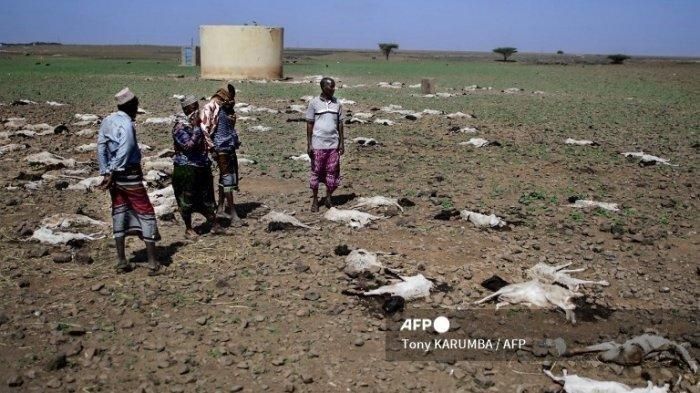
The Horn of Africa region has been hit by drought and is predicted to get worse in 2022. Many animals die from starvation and exhaustion due to drought.
Three countries in the Horn of Africa - Somalia, Kenya and Ethiopia - have reported dire effects of the drought. People have been trying to keep animals and themselves alive.
According to ABC News, somalia in Ethiopia has failed three consecutive rainy seasons. Drought has come and gone for years, but resident Zaynab Wali told a visiting team with the U.N. children's agency that she and her seven children had never seen anything like it.
The government distributed food and animal feed during the last drought five years ago, he said.
This time, "we don't have enough food for our family."
More than 6 million people in Ethiopia are expected to be in need of urgent humanitarian assistance by mid-March, UNICEF said Tuesday.
In neighboring Somalia, more than 7 million people are in need of urgent assistance, the Consortium of Somali NGOs said.
They appealed to international donors for more help. This could be the region's worst drought in 40 years, the consortium said.
"We are only one month into a long dry season, and I have lost 25 goats and sheep," Hafsa Bedel in Ethiopia's Somali region told UNICEF.
"I also lost four camels. There is no grassland."
"There wasn't enough food for his own family, including his six children," he said.
UNICEF estimates that more than 150,000 children in such areas in Ethiopia have dropped out of school to help pick up scarce water and handle other tasks.
A boy propped up a donkey, which used to be very important for carrying goods, which became too weak to walk on its own.
"We have animals dying at an impressive rate, which is increasing every month, and animal deaths mean food shortages for children, for families," Gianfranco Rotigliano, UNICEF representative in Ethiopia, told a UN briefing in Geneva via video conference on Tuesday.
He said some water sources were drying up or already dry, and pointed to the need to rehabilitate wells, drill boreholes and get water for health and nutrition systems.
Rotigliano said the Ethiopian government's conflict with fighters from the country's northern Tigray region had no impact on UNICEF's response to drought-stricken areas hundreds of kilometers (miles) to the southeast.